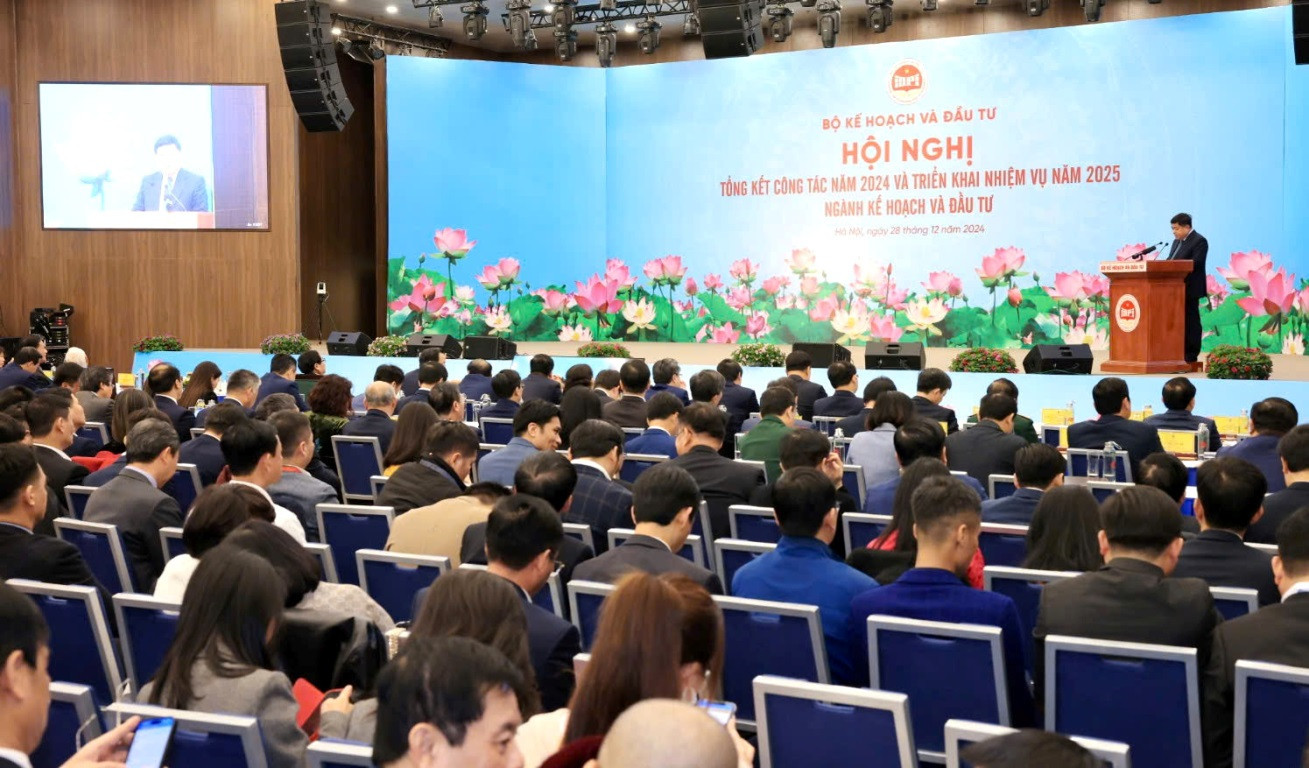Vietnam must achieve sustained high growth rates - targeting at least 10% annually - over the next 20 years to realize its ambition of becoming a high-income nation by 2045, said Minister of Planning and Investment Nguyen Chi Dung during a year-end review conference on December 28.
Achievements in 2024 and goals for 2025

At the conference summarizing 2024 and outlining tasks for 2025, Minister Dung reported that Vietnam met all 15 key economic and social targets set for the year. The economy grew at an estimated rate of 7%, exceeding the National Assembly’s goal of 6-6.5%.
Vietnam remains a magnet for foreign direct investment (FDI) despite global declines and increasing competition. Over the first 11 months of the year, registered FDI reached $31.4 billion, with $21.7 billion disbursed, a 7.1% increase year-over-year.
A historic milestone was achieved with the signing of an agreement between the government and NVIDIA to establish an Artificial Intelligence (AI) Research and Development Center and Data Center in Vietnam, positioning the country as a leading AI hub in Asia.
Vision for long-term growth
Minister Dung emphasized the importance of 2025 as a pivotal year for shaping Vietnam’s strategic development through 2030 and toward the 2045 vision.
“Over the next 20 years, Vietnam must sustain double-digit growth to achieve high-income status by 2045,” he said, highlighting the need for strategic planning aligned with the Party’s vision for a prosperous and powerful nation.
The Ministry of Planning and Investment (MPI) has been actively implementing reforms, including plans to merge with the Ministry of Finance. Minister Dung assured that while the organizational structure may change, the core functions in planning, investment, and statistics will remain intact and even expand in scope.
“The challenges we face require greater dedication and effort from every member of the ministry, no matter the structure or name. We will uphold the legacy of 80 years of service, continuing to lead reforms and innovate for the nation’s development,” he affirmed.
The MPI has already reduced its number of departments to 23 and plans further consolidation of public service units through two phases: by 2025 and by 2030. A roadmap is in place for restructuring leadership roles for the 2021-2026 and 2026-2031 terms.
Key reforms and initiatives
The Ministry is prioritizing: Safeguarding economic growth and stability to pave the way for the 14th National Party Congress.
Leading innovation and digital transformation, combating inefficiencies, and protecting the environment.
Modernizing infrastructure and systems to meet the demands of a rapidly evolving global economy by 2030.
With these reforms, the MPI aims to remain at the forefront of Vietnam’s development, driving the country toward its ambitious long-term goals.
Nguyen Le